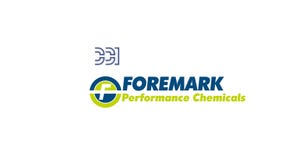January 4, 2010
The Environmental Protection Agency (EPA) today released the first set of Chemical Action Plans (CAPs) on four chemicals. Although the American Chemistry Council (ACC) supports EPA’s effort to outline possible agency actions for prioritized chemicals under the existing Toxic Substances Control Act (TSCA), ACC and its member companies are disappointed that the initial set of chemicals seem to have been selected based on little more than their current “high-profile” nature.
Cal Dooley, ACC president and CEO, said, “In exercising its authority under TSCA, EPA should prioritize chemicals for the CAP program based on scientific criteria that reflect available hazard, use, and exposure information provided to the agency. Unfortunately, until today, there has been little transparency, and significant uncertainty, over the scientific basis for the selection of these chemicals. The action plans released today include references to scientific studies that the agency believes make the case for restrictive action, but the agency should maintain their responsibility to review the weight of evidence for all scientific studies, even those that lead to a different conclusion. The chemical industry supports modernizing the way chemicals are managed in commerce, but the CAP process to date provides no evidence of a systematic, science-based approach to chemicals management. It is vital that this be addressed.
“ACC members are proud of our products. Chemicals are critical in life-saving vaccines, solar panels, and energy-efficient products, clean water, and so many other uses that improve quality of life, safety, and the environment. ACC members will continue to work with consumer, government, and scientific organizations to understand the impacts of chemicals on human health and the environment.”
Phthalates:
Our initial review raises concerns about EPA’s criteria for suggesting that the agency may consider the need for further restrictions on these products. It is important to note that there is a large body of scientific data that already exists about phthalates and that these products have already been subject to numerous government safety assessments. Manufacturers have a high level of confidence in the safety profile of these chemicals. In fact, phthalates are one of the most extensively studied groups of chemical compounds in the world.
While the action plan notes that phthalates are generally detected in biomonitoring data collected by the Center for Disease Control and Prevention(CDC), EPA fails to note that exposure to phthalates in the general public indicated by the CDC data are below – in most cases, well below - safety limits established by the EPA and the European Union. ACC will need time to study the EPA recommended actions specific to phthalates in greater detail, but we are encouraged by the Agency’s plan to work closely with the other federal regulatory agencies.
DECA:
Prior to the release of Chemical Action Plans, individual companies entered into discussions with the EPA that resulted in a voluntary Deca phase out initiative with the goal that companies will comply with a timetable to cease all production, importation, and sales of decaBDE in the U.S. by the end of 2013. The joint EPA-industry initiative is a voluntary program encouraging domestic manufacturers and importers to participate. With regard to EPA's overall plans for c-pentaBDE and c-octaBDE; industry is in the process of reviewing the recent chemical action plan.
The ACC represents the leading companies engaged in the business of chemistry. For more information, visit www.americanchemistry.com.
You May Also Like


